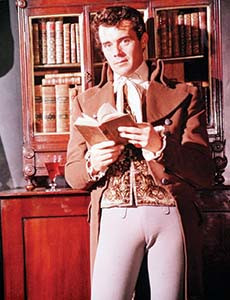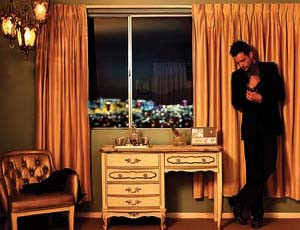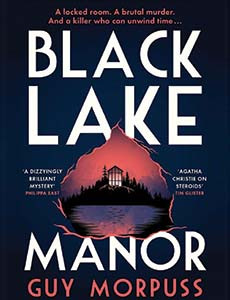*/

Barristers are storytellers. We don’t win cases by arguing about the law. We win by telling the judge a better story than the other side. Or as Jerome Frank put it, judges decide cases on the basis of instinct, and laws are merely the ‘formal clothes’ in which they dress up their thoughts.
So it seems to me that the most important skill that a barrister can learn in their formative years is how to tell a good story.
I grew up in South Africa in the 1970s/80s, when there wasn’t much to do except read. The nearest nightclub was 20 miles away. We had one TV channel, which only broadcast for a few hours every evening, and alternated each day between English and Afrikaans. My Afrikaans was terrible. And because of sanctions resulting from apartheid, there wasn’t much to watch on the English nights.
So I read. Voraciously. My father had an extensive library of crime books and thrillers: Alistair MacLean, Desmond Bagley, Gavin Lyall, Edgar Wallace, Dick Francis.
A favourite author of his was Dornford Yates, a moderately successful barrister who became a household name with his thrillers (the ‘Chandos’ books) and comedies (the ‘Berry’ books). One of the first novels I remember reading was Blind Corner, which opens with a man being murdered and the discovery of a treasure map hidden inside his dog’s collar. There follows a chase across Europe to a remote castle, and a race to extract the treasure from a secret chamber at the bottom of a well.
As with many authors of that era, some of his views have not dated well. Nevertheless, the stories remain engrossing and funny (of the Berry books, I recommend Adele & Co).
The thrillers that I grew up reading taught me the essence of good storytelling (and advocacy): grab your reader’s interest with the opening line, keep it short, and quit while you are ahead.
I discovered at a young age that I was good at arguing. I was shy, but if given a platform and a cause to argue I was in my element. It was about this time that I saw two films that made me realise that I wanted to be a barrister.
In A Tale of Two Cities Dirk Bogarde plays the part of an alcoholic barrister whose unrequited love for Lucie dooms him. He voluntarily goes to the guillotine in place of her husband. I am not a massive fan of Charles Dickens, but the book (and film) contain one of the greatest closing lines ever, which I can still remember: ‘It is a far, far better thing that I do, than I have ever done; it is a far, far better rest that I go to than I have ever known.’ In death he finds redemption.
It may seem an odd film to inspire someone to want to become a barrister, as it does not have a lot to do with the law. But there was something about the noble self-sacrifice that grabbed me. I thought all barristers must be like that.
The other film was a more mainstream legal drama: Witness for the Prosecution, starring Charles Laughton and Marlene Dietrich. I was entranced by the skill with which Laughton held centre-stage in court – although in truth he was the one being manipulated by Dietrich. Perhaps it was a useful warning about clients. It contains one of the best twists of any film or book.
So I went into the law imagining that I was going to be conducting murder trails at the Old Bailey. In fact I spent 30 years as a commercial lawyer. The only criminal case I ever did ended up with my client, a landlord, paying their tenant a lot of money to buy off a prosecution. The magistrate (rightly, I suspect) seemed dubious about this, but nodded it through.
I find music a great way of shutting out distractions and helping my brain make intuitive leaps. When preparing for trials I would endlessly listen to the same album on repeat all day: Flamingo by Brandon Flowers was the soundtrack to one trial; The ’59 Sound by The Gaslight Anthem to another. If I listen to them now they still take me back to arguing about Formula One racing or football clubs.
I do the same when writing. My second novel originally opened at an underground rave in Berlin (sadly the scene got culled by my editor), and I wrote the book listening to German schlager music. I recommend looking up Wie Heisst die Mutter Von Niki Lauda on YouTube.
I am also inspired by places: Chittorgarh, a massive, deserted walled city in India; and the stark beauty of Vancouver Island.
Finally, the one thing I would never be without: my running shoes. It is an exercise you can do anywhere, and going for a run is the easiest way of clearing a cluttered brain.



The soundtrack to a trial: Flamingo by Brandon Flowers.

Guy practised at the Commercial Bar for 30 years before taking up full-time writing in 2021. He writes speculative crime fiction: twist one element of the real world, add a dead body, and play with the consequences. His first novel, Five Minds (Viper: 2021), is about five people sharing one body, one of whom is trying to murder the others. It was a Financial Times Book of the Year and a Kindle Number 1 Bestseller in Technothrillers and Post-Apocalyptic SF. Translation rights have been sold in eight territories. His second novel, Black Lake Manor (Viper: 2022), is a locked room murder mystery set on Vancouver Island, where the killer can unwind time – which makes it difficult for the detective trying (repeatedly) to solve the murder.

Barristers are storytellers. We don’t win cases by arguing about the law. We win by telling the judge a better story than the other side. Or as Jerome Frank put it, judges decide cases on the basis of instinct, and laws are merely the ‘formal clothes’ in which they dress up their thoughts.
So it seems to me that the most important skill that a barrister can learn in their formative years is how to tell a good story.
I grew up in South Africa in the 1970s/80s, when there wasn’t much to do except read. The nearest nightclub was 20 miles away. We had one TV channel, which only broadcast for a few hours every evening, and alternated each day between English and Afrikaans. My Afrikaans was terrible. And because of sanctions resulting from apartheid, there wasn’t much to watch on the English nights.
So I read. Voraciously. My father had an extensive library of crime books and thrillers: Alistair MacLean, Desmond Bagley, Gavin Lyall, Edgar Wallace, Dick Francis.
A favourite author of his was Dornford Yates, a moderately successful barrister who became a household name with his thrillers (the ‘Chandos’ books) and comedies (the ‘Berry’ books). One of the first novels I remember reading was Blind Corner, which opens with a man being murdered and the discovery of a treasure map hidden inside his dog’s collar. There follows a chase across Europe to a remote castle, and a race to extract the treasure from a secret chamber at the bottom of a well.
As with many authors of that era, some of his views have not dated well. Nevertheless, the stories remain engrossing and funny (of the Berry books, I recommend Adele & Co).
The thrillers that I grew up reading taught me the essence of good storytelling (and advocacy): grab your reader’s interest with the opening line, keep it short, and quit while you are ahead.
I discovered at a young age that I was good at arguing. I was shy, but if given a platform and a cause to argue I was in my element. It was about this time that I saw two films that made me realise that I wanted to be a barrister.
In A Tale of Two Cities Dirk Bogarde plays the part of an alcoholic barrister whose unrequited love for Lucie dooms him. He voluntarily goes to the guillotine in place of her husband. I am not a massive fan of Charles Dickens, but the book (and film) contain one of the greatest closing lines ever, which I can still remember: ‘It is a far, far better thing that I do, than I have ever done; it is a far, far better rest that I go to than I have ever known.’ In death he finds redemption.
It may seem an odd film to inspire someone to want to become a barrister, as it does not have a lot to do with the law. But there was something about the noble self-sacrifice that grabbed me. I thought all barristers must be like that.
The other film was a more mainstream legal drama: Witness for the Prosecution, starring Charles Laughton and Marlene Dietrich. I was entranced by the skill with which Laughton held centre-stage in court – although in truth he was the one being manipulated by Dietrich. Perhaps it was a useful warning about clients. It contains one of the best twists of any film or book.
So I went into the law imagining that I was going to be conducting murder trails at the Old Bailey. In fact I spent 30 years as a commercial lawyer. The only criminal case I ever did ended up with my client, a landlord, paying their tenant a lot of money to buy off a prosecution. The magistrate (rightly, I suspect) seemed dubious about this, but nodded it through.
I find music a great way of shutting out distractions and helping my brain make intuitive leaps. When preparing for trials I would endlessly listen to the same album on repeat all day: Flamingo by Brandon Flowers was the soundtrack to one trial; The ’59 Sound by The Gaslight Anthem to another. If I listen to them now they still take me back to arguing about Formula One racing or football clubs.
I do the same when writing. My second novel originally opened at an underground rave in Berlin (sadly the scene got culled by my editor), and I wrote the book listening to German schlager music. I recommend looking up Wie Heisst die Mutter Von Niki Lauda on YouTube.
I am also inspired by places: Chittorgarh, a massive, deserted walled city in India; and the stark beauty of Vancouver Island.
Finally, the one thing I would never be without: my running shoes. It is an exercise you can do anywhere, and going for a run is the easiest way of clearing a cluttered brain.



The soundtrack to a trial: Flamingo by Brandon Flowers.

Guy practised at the Commercial Bar for 30 years before taking up full-time writing in 2021. He writes speculative crime fiction: twist one element of the real world, add a dead body, and play with the consequences. His first novel, Five Minds (Viper: 2021), is about five people sharing one body, one of whom is trying to murder the others. It was a Financial Times Book of the Year and a Kindle Number 1 Bestseller in Technothrillers and Post-Apocalyptic SF. Translation rights have been sold in eight territories. His second novel, Black Lake Manor (Viper: 2022), is a locked room murder mystery set on Vancouver Island, where the killer can unwind time – which makes it difficult for the detective trying (repeatedly) to solve the murder.


The Chair of the Bar sets out how the new government can restore the justice system
In the first of a new series, Louise Crush of Westgate Wealth considers the fundamental need for financial protection
Unlocking your aged debt to fund your tax in one easy step. By Philip N Bristow
Possibly, but many barristers are glad he did…
Mental health charity Mind BWW has received a £500 donation from drug, alcohol and DNA testing laboratory, AlphaBiolabs as part of its Giving Back campaign
The Institute of Neurotechnology & Law is thrilled to announce its inaugural essay competition
How to navigate open source evidence in an era of deepfakes. By Professor Yvonne McDermott Rees and Professor Alexa Koenig
Brie Stevens-Hoare KC and Lyndsey de Mestre KC take a look at the difficulties women encounter during the menopause, and offer some practical tips for individuals and chambers to make things easier
Sir Geoffrey Vos, Master of the Rolls and Head of Civil Justice since January 2021, is well known for his passion for access to justice and all things digital. Perhaps less widely known is the driven personality and wanderlust that lies behind this, as Anthony Inglese CB discovers
The Chair of the Bar sets out how the new government can restore the justice system
No-one should have to live in sub-standard accommodation, says Antony Hodari Solicitors. We are tackling the problem of bad housing with a two-pronged approach and act on behalf of tenants in both the civil and criminal courts